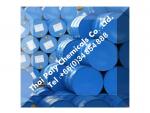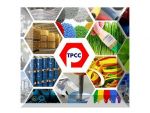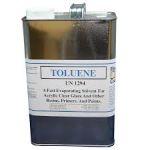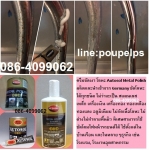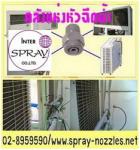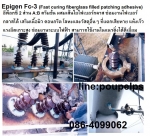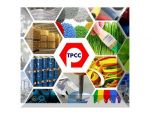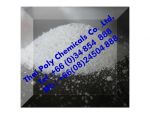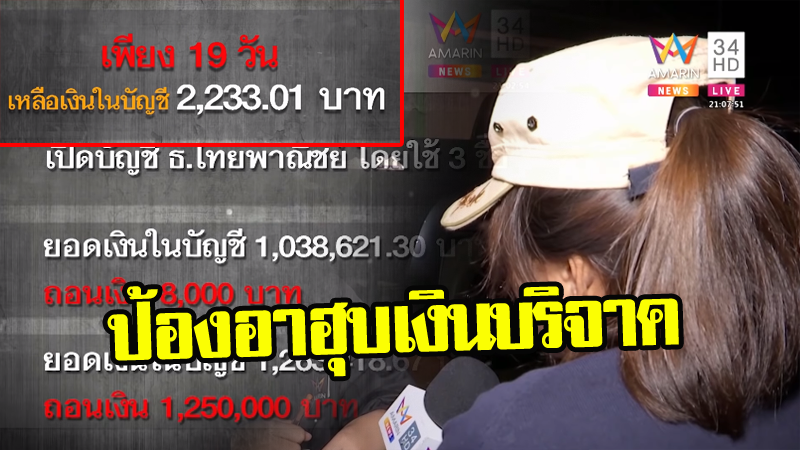Diisononyl Phthalate น้ำมัน DINP |
฿1 |
|
ชื่อผู้ประกาศ : อัศวิน วิรุธพานนท์ เบอร์โทรศัพท์ : 034854888 โทรศัพท์มือถือ : 0800160016 ที่อยู่ : 36/5 ม.9 ต.นาดี อ.เมืองสมุทรสาคร การติดต่ออื่นๆ : www.thaipolychemicals.com ร้าน บริษัทไทยโพลีเคมิคอลจำกัด THAI POLY CHEMICALS CO.,LTD (TPCC) |
น้ำมันดีไอเอ็นพี, DINP, Diisononyl Phthalate, ไดไอโซโนนิลพธาเลธ,
Plasticizers, พลาสติไซเซอร์, สำหรับอุตสาหกรรมการผลิตต่างๆ
DINP; Isononyl alcohol phthalate; DINP; Palatinol DN; Palatinol N;
1,2-Benzenedicarboxylic acid
diisononyl ester; Bis(7-methyloctyl) phthalate;
Di(C8-C10) branched alkyl phthalate; Di(isononyl) phthalate branched;
Di(C8-10, C9 rich) branched alkyl phthalates; Vestinol 9; Vestinol NN;
Vinylcizer 90; Witamol 150; Other RN: 68515-48-0; 105009-97-0; 41375-91-1;
58033-90-2Phthalates are by far the most
widely used plasticisers, primarily to make soft and flexible polyvinyl
chloride (PVC) for the applications in the industry of automotive, building
& construction material, cable, flooring, medical device and toys. Phthalates
make the long polyvinyl molecules to slide against one another. Minor quantity
of phthalates are used in adhesives, caulk, sealants, paint to improve work
performance. Small molecule phthalates are used as solvents in perfumes to
provide longer linger longer and in nail polish to prevent chipping. They are
also used as ingredients of insect repellents, as solvents in lacquer and
pesticides, and as dye carrier. They are used as textile lubricating agents and
as solid rocket propellents. Phthalates are produced by the reaction of
phthalic anhydride with appropriate alcohols from methanol up to isodecanol
(C13), either as a straight chain or with some branched in the presence of
concentrated sulphuric acid as a catalyst. Excess alcohols are recovered and
recycled and phthalates are purified by vacuum distillation and/or activated
charcoal. A wide range of phthalates of varying chain length and structure
provides each adequate properties and cost-effective for various processing and
mechanical requirements. C8 - C9 phthalates, such as di-2-ethyl hexyl phthalate
(DEHP or called DOP), diisodecyl phthalate (DIDP) and diisononyl phthalate
(DINP) are the most widely used general purpose phthalates. DOP is the dominant
plasticizer used in PVC, providing low cost. Short chain phthalates (C3 - C7)
are used when rapid setting and stain resistance is required. 2-Ethyl hexanol,
produced by the dimerisation of butyraldehyde obtained from propylene, is
cheaper than isononyl alcohol which are prepared by the carbonylation of an olefin.
Long chain phthalates (C11 - C13) are used when high temperature stability is
required. C1 and C2 phthalates are used as solvents. Special phthalates which
contain aromatic ring in the side chain are used when fast-fused is required.
Diallyl phthalate is used as a crosslinking agent, plasticizer or dying carrier
for polyesters.Diisononyl phthalate (DINP) is a
phthalate used as a plasticizer in e.g. food contact materials. DINP is
typically a mixture of chemical compounds consisting of various isononyl esters
of phthalic acid.The European Union has set a
maximum specific migration limit from food contact materials of 9mg/kg food for the sum of diisononyl phthalates and diisodecyl phthalates.
Di-isononyl phthalate (DINP) is a commonly used plasticiser, 95per cent of which is used in PVC applications. More than half of the DINP used
in non-PVC applications involves polymer related-uses (e.g. rubbers). The
remaining DINP is used in inks and pigments, adhesives, sealants, paints and
lacquers and lubricants. DINP is a mixture of isomers that have alkyl chains
from 8 to 10 carbons long, but the largest portion of the mixture has chains composed of 9-carbons. There are two different substances attributed to the names 1,2-Benzenedicarboxylic acid, di-C8-10-branched alkyl esters, C9-rich or di-?isononyl? phthalate (DINP). DINP 1 (CAS 68515-48-0) is manufactured by the ?Polygas? process whereas DINP 2 (CAS 28553-12-0) is n-butenebased. Under the EU risk assessment these substances have been considered
equivalent from a health and environmental perspective, andas such a single EU risk
assessment has been conducted for DINP. DINP is a general, all-purpose
plasticiser.Heat resistance, low temperature
resistance and volatility resistance are some of its main properties that make
it suitable for a wide range of applications.Physical-chemical properties
CAS Reg. No: 68515-48-0 and 28553-12-0
(different alcohol chains depending on production method)
EINECS No: 271-090-9 and 249-079-5
Synonyms / IUPAC name: 1,2-Benzenedicarboxylic
acid, di-C8-10 branched alkyl esters, C9-rich;
Di-isononyl phthalate
Empirical Formula: C26H42O4 (average)
Structure:
R1 and R2 (not
necessary identical) are either mainly C8H17
to C10H21 or C9H19 isomers. In the case where R1 and R2 is C9H19 isomers, it
is 10 % n-nonyl, 35-40 % methyloctyl,
40-45 % dimethylheptyl, 5-10 % methylethylhexyl.
Molecular weight: 420.6 (average)
Melting point: -40 to -54?C
Boiling point: 424?C
Density: ca. 0.975 at 20?C
Vapour pressure: 6 x 10-5
Pa at 20?C
Solubility in water: 0.6 ?g/l 20?C
Henry's law constant: 41.4 pa' m3/mol
Log Kow: 8.8
Flash point: > 200?C
Autoflammability: ca. 380?C
Viscosity: 100-150 mPa's
Purity: DINP is a manufactured substance made by esterifying phthalic
anhydride and isononanol. Isononanol is composed of different branched C9 alcohol isomers.Impurities: Isononanol ca. 0.04%, isononylbenzoate
ca. 0.03%, n-butyl-isononyl phthalate ca. 0.1%,
water 0.02-0.03%.
สอบถามข้อมูลเพิ่มเติมได้ที่
ฝ่ายขายThai Poly Chemicals Co., Ltd.
บริษัท ไทยโพลีเคมิคอล จำกัด
ที่อยู่36/5 ม.9 แขวง/ตำบลนาดี
เขต/อำเภอเมืองสมุทรสาคร
จังหวัดสมุทรสาคร รหัสไปรษณีย์74000Tel.: 034854888,
034496284
Fax.: 034854899,
034496285
Mobile: 0824504888,
0800160016
Website :
www.thaipolychemicals.comEmail1 : thaipolychemicals@hotmail.com
Email2 : info@thaipolychemicals.com
พลาสติไซเซอร์DINPplasticizerไดไอโซโนนิลพธาเลธพธาเลทพธาเลตdiisononylน้ำมันดีไอเอ็นพีพทาเลทphthalate

